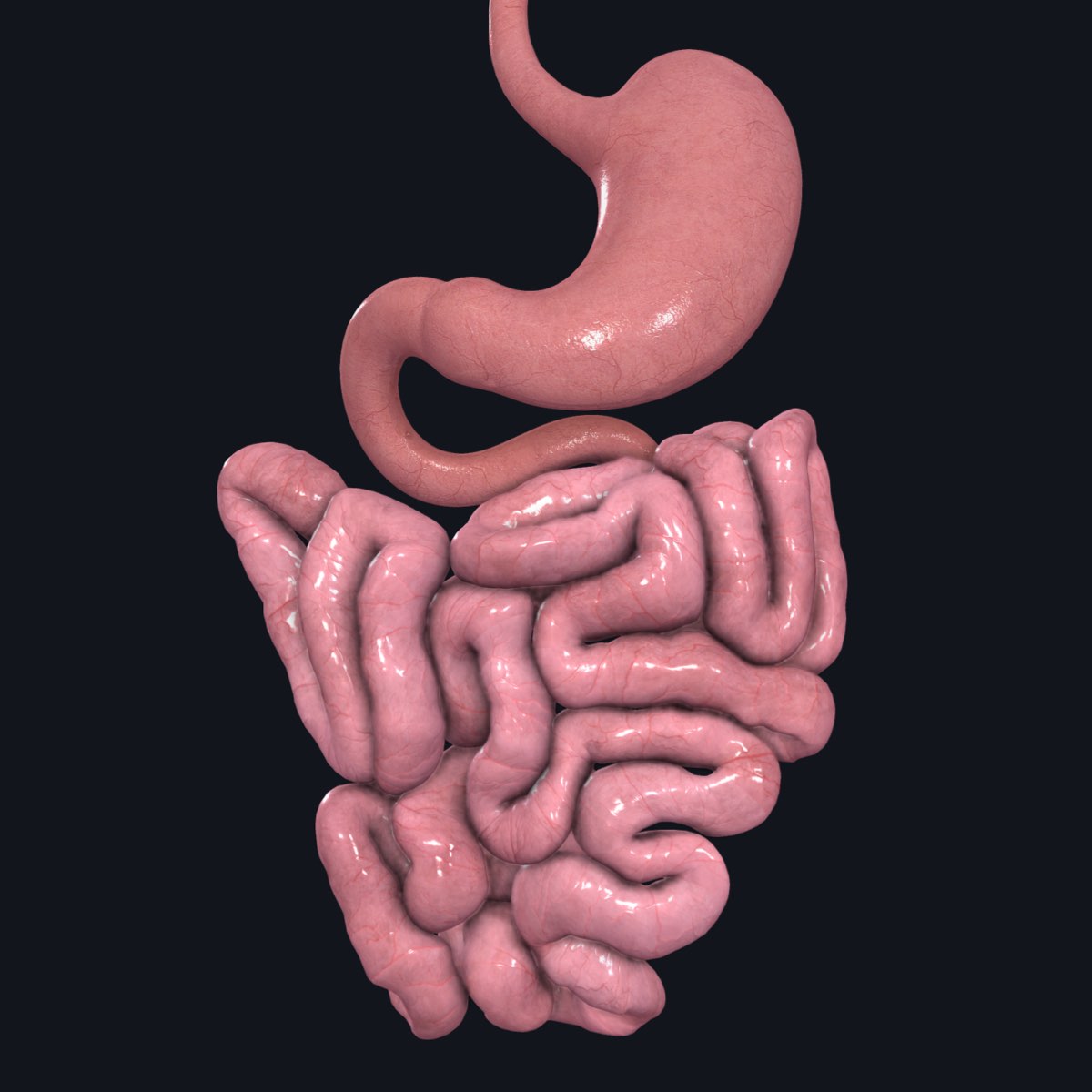Have you ever experienced that odd, gurgling sound coming from your stomach and wondered what on earth is happening inside you? Well, you’re not alone! Intestinal rumbling, often referred to as “borborygmi,” is a natural bodily function that can leave you feeling a little embarrassed or confused. This phenomenon can be a common part of digestion, and understanding its causes can help you find some relief. Let’s dive deeper into what actually causes this rumbling sound and how you can address it!
Common Causes of Intestinal Rumbling

Intestinal rumbling can be attributed to several factors, and often it's completely normal. So let’s break down some of the main causes:
- Digestion: The most straightforward cause of intestinal rumbling is your body processing food. As your intestines contract to mix and propel food along the digestive tract, these movements can create noises. Eating prompts your gastrointestinal tract to become active, which can result in those rumbling sounds.
- Hunger: Ever noticed those sounds getting a bit louder when you're hungry? That's because an empty stomach can lead to excess gas and air moving around as your body prepares for food. It’s like your intestines are saying, “Hey, we need something to work on!”
- Gas and Bloating: Sometimes, the rumbling can be a sound of gas moving through your intestines. This can happen after consuming gas-producing foods, such as beans, carbonated drinks, or cruciferous vegetables like broccoli and cabbage.
- Food Intolerances: If your body has trouble digesting certain foods, you may experience increased rumbling. Lactose intolerance, gluten sensitivity, and other dietary issues can disrupt normal digestion and lead to uncomfortable sounds.
- Infection or Inflammation: More serious causes may include gastrointestinal infections or conditions like irritable bowel syndrome (IBS). These can disrupt normal functioning and cause frequent sounds, along with other symptoms.
Understanding these causes can provide some insight into your own body’s language. The rumbling isn't always a cause for concern, but if it’s frequent or accompanied by pain, it may be worth a chat with your healthcare provider.
Understanding the Digestive Process

Let's dive into the fascinating world of digestion and understand what really happens to your food once it enters your body. The digestive process is a complex system that involves breaking down food, absorbing nutrients, and eliminating waste.
It starts in the mouth, where enzymes in saliva kick off digestion. Chewing breaks food into smaller pieces, making it easier for your stomach to take over the heavy lifting. Once you swallow, food travels down the esophagus and into your stomach, where it mixes with gastric juices to further break it down.
After the stomach, the food moves into the small intestine, where most nutrient absorption occurs. Here, bile from the liver and pancreatic juices come into play, aiding in the digestion of fats, proteins, and carbohydrates. As your intestines work, you may hear a gurgling sound often referred to as “borborygmi.” This is a normal occurrence and is usually just your intestines working to move food along.
Lastly, what's left over travels to the large intestine, where water is absorbed and waste begins to form. Any gas produced during this process can also contribute to those rumbling sounds you might hear. Overall, the digestive process is a symphony of movements and reactions, and sometimes, it just can’t help but make a little noise!
Lifestyle Factors Contributing to Intestinal Noise
Now that we have a grasp on the digestive process, let’s explore some lifestyle factors that might be making your intestines more vocal than usual. Believe it or not, certain habits and choices can amplify those rumbling sensations.
- Dietary Choices: What you eat plays a crucial role in digestive sounds. High-fiber foods, beans, and carbonated drinks tend to produce more gas, leading to those gurgling sounds.
- Eating Habits: Eating too quickly can lead to swallowing air, which can increase intestinal noise. Take your time! Savor your food.
- Hydration: Staying hydrated is essential. Dehydration can slow down digestion, making your intestines work harder and potentially making more noise.
- Stress Levels: Stress doesn’t just affect your mind; it can cause your muscles, including those in your digestive tract, to tense up or spasm, contributing to increased noise.
- Physical Activity: Regular exercise promotes good digestion, while a sedentary lifestyle may cause sluggishness in your intestines which could result in more audible movement.
By being mindful of these factors, you might just find a way to keep your intestines a bit quieter and improve your overall digestive health!
5. Home Remedies for Managing Intestinal Rumbling
Experiencing intestinal rumbling can be a bit annoying, but fortunately, there are several home remedies you can try to help alleviate this discomfort. Here are a few suggestions you might find useful:
- Stay Hydrated: Drinking plenty of water helps ensure your digestive system runs smoothly. Aim for at least 8 glasses a day.
- Ginger Tea: Ginger has anti-inflammatory properties that can calm your stomach. Boil some fresh ginger in water, strain, and sip on this soothing tea.
- Peppermint Oil: A few drops of peppermint oil, added to a glass of warm water, may help ease digestive issues and reduce rumbling.
- Probiotic Foods: Incorporating yogurt, kefir, or fermented foods like sauerkraut into your diet can promote healthy gut bacteria, which may reduce rumbling.
- Mindful Eating: Eating slowly and chewing your food thoroughly can help digestion and prevent excess air from entering your intestines.
In addition to these remedies, consider incorporating regular physical activity into your routine. Exercise helps stimulate the digestive tract and might lessen those gurgling sounds.
6. When to Seek Medical Advice
While intestinal rumbling is usually nothing to worry about, there are certain signs and symptoms that should prompt you to seek medical advice. Understanding when to consult a healthcare professional can be crucial for your health:
- Persistent Pain: If your rumbling is accompanied by severe abdominal pain that doesn't go away, it's time to check in with a doctor.
- Sudden Changes in Bowel Habits: Noticeable shifts in your bowel patterns, including diarrhea or constipation lasting more than a couple of days, warrant a medical opinion.
- Unexplained Weight Loss: If you're losing weight without trying, it could indicate an underlying issue that requires investigation.
- Fever: A high fever accompanying your symptoms could signal an infection or inflammation that needs addressing.
- Blood in Stool: This is a serious symptom and should prompt immediate medical attention.
Remember, your health is paramount. If you're ever in doubt, it's best to consult a healthcare professional for personalized advice tailored to your situation.
Understanding Why Your Intestines Are Rumbling and How to Alleviate It
Intestinal rumbling, commonly known as borborygmus, is a natural phenomenon caused by the movement of gas and fluids in the intestines. This rumbling can signify various underlying processes, including digestion and hunger cues. While it can be a normal bodily function, it can sometimes indicate digestive issues or discomfort.
Here are some common causes of intestinal rumbling:
- Hunger: When the stomach is empty, the body produces hormones that stimulate the digestive system, leading to rumbling sounds.
- Digestion: The process of breaking down food can create noises as gas and fluids move through the intestines.
- Gas Production: Foods rich in fiber or those that are difficult to digest can lead to increased gas in the intestines.
- Medical Conditions: Conditions like irritable bowel syndrome (IBS), gastroenteritis, or obstruction can cause excessive rumbling.
To alleviate excessive intestinal rumbling, consider the following strategies:
| Strategy | Details |
|---|---|
| Eat Smaller Meals | Consuming smaller, more frequent meals can reduce the burden on your digestive system. |
| Stay Hydrated | Drinking plenty of water aids in digestion and reduces gas buildup. |
| Avoid Trigger Foods | Identify and avoid foods that upset your stomach, such as dairy, beans, or carbonated beverages. |
| Manage Stress | Stress can lead to digestive issues; practicing relaxation techniques can help. |
In conclusion, understanding the reasons behind intestinal rumbling can help demystify this common occurrence. By implementing some basic lifestyle changes and being mindful of your diet, you can manage and alleviate excessive stomach sounds and improve overall gut health.
Key Takeaways:
- Intestinal rumbling is often a normal part of digestion.
- Common causes include hunger, digestion, and gas production.
- Small dietary changes and hydration can help alleviate discomfort.
 admin
admin








